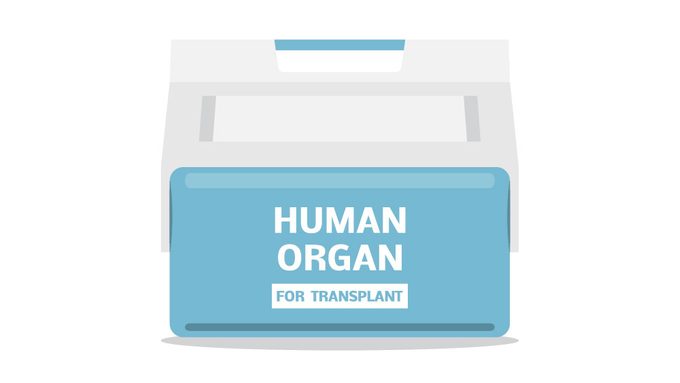What Canadians Need to Know About Organ Donation
Just 20 percent of Canadians are registered organ donors.

Organ donation in Canada isn’t where it needs to be.
The number of registered organ donors in Canadian has improved in recent years, but our country still has a long way to go before we’re on par with other developed countries like France, Portugal and the United States. Think about this: Just 20 percent of the Canadian population has signed up to be a donor, despite the majority of Canadians (90 percent) being in support of organ donation.
Hopefully, that’s changing. Earlier this month, as news spread that Humboldt Broncos player Logan Boulet had saved six lives by donating his organs, many provincial organizations reported a spike in organ donation registration.
Dr. Michael Chassé, a CIHR-funded researcher and assistant professor with the Department of Medicine at the University of Montreal says this isn’t unusual. “It is well described that when a significant event occurs in regards to organ donation, donation rates increase in that jurisdiction for some time.”
According to Canadian Blood Services, approximately 4,500 Canadians are waiting for a lifesaving organ transplant. (In Ontario alone, there are more than 1,500 Canadians on the list.) Sadly, as many as 250 Canadians die each year while they’re waiting.
Related: Organ Donation — One Woman’s Story
While some experts consider Canada to have a fairly poor organ donation rate, Dr. Chassé says he doesn’t think Canada is falling behind, but rather catching up. “In the last few years, several new donation programs were introduced in several provinces such as donation after cardiac death,” he says. (Until more recently, donation after brain death was the only form of deceased donation recognized in Canada.)
As for why more Canadians haven’t registered, there isn’t a single answer. Dr. Chassé says his role as a researcher is to try and identify new barriers to organ donation, as well as areas for improvement. One of those areas focuses on delivering new information to hospital medical teams to help identify a dying patient as a potential donor, he says.
Interested in becoming a registered organ donor? Here’s what you need to know.
Your age and medical history won’t disqualify you
The oldest organ donor was over 90 years old, according to beadonor.ca. And, even if you have a serious illness, you may still be eligible to donate unaffected organs or tissues. For example, someone with diabetes likely wouldn’t be able to donate their pancreas but could donate other healthy organs or tissues such as the heart, lungs, cornea, etc.
You can be a living donor
It’s also possible to be a living donor to someone in need of a kidney or liver. In a healthy donor, the remaining kidney will compensate for the kidney that’s been removed and transplanted. Living donor liver transplantation is possible because the liver is able to regenerate. Up to one half of the liver is removed for transplant.
It’s so important to let your family know your wishes
Even if you’ve consented to organ donation, your family can override your wishes. When reviewing data from 2015, researchers found that 20 percent of families vetoed a loved ones’ intent to donate.
Related: Are Your Odds of Developing Cancer Really a 50/50 Chance?
It’s easy to register online
Like health care, organ donation is managed at a provincial level in Canada. That means there isn’t a single organ donation registry but it is easy to sign up online. The Canadian Transplant Society links to each provinces registration on their website.
April 22 to 28, 2018 is National Organ and Tissue Donation Awareness Week. Learn more at organtissuedonation.ca.




